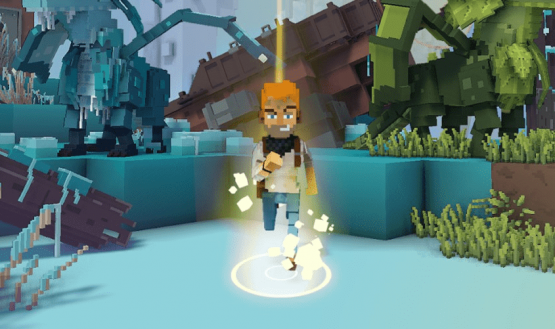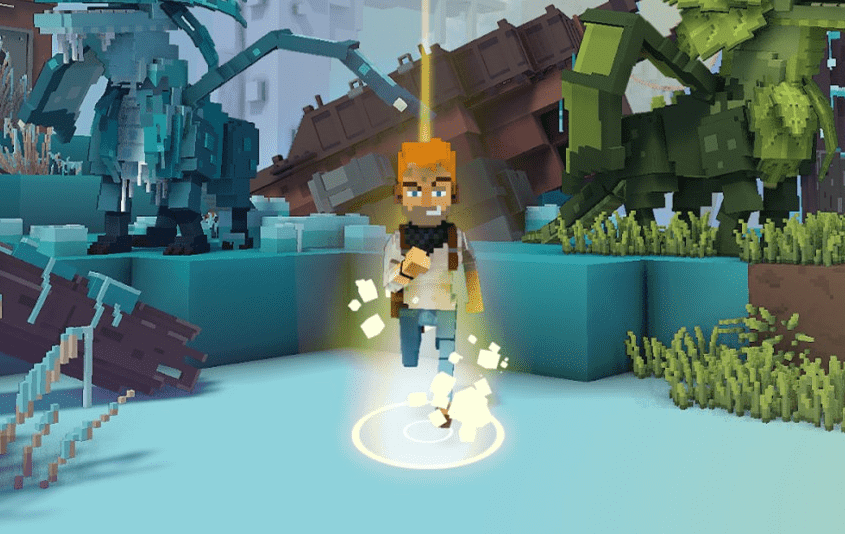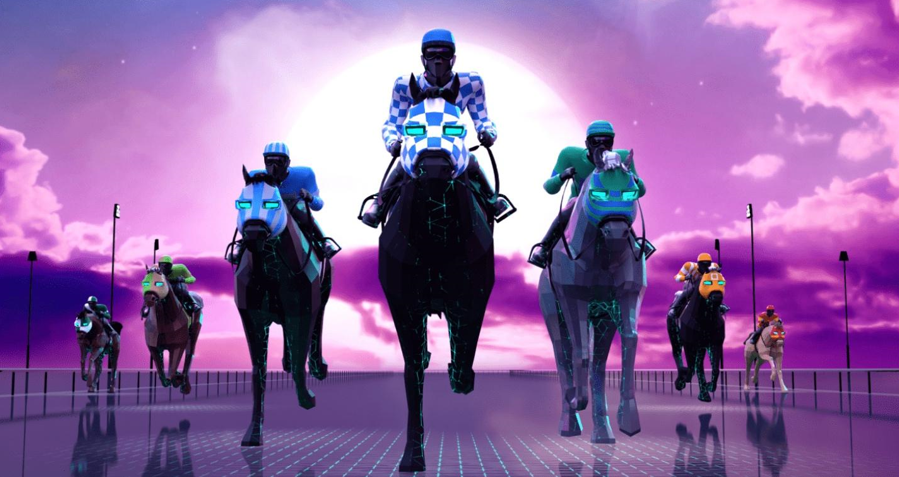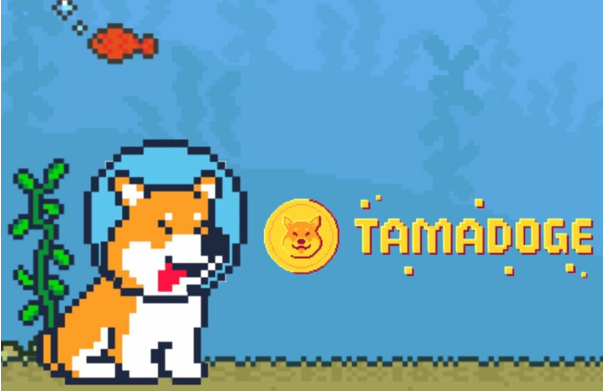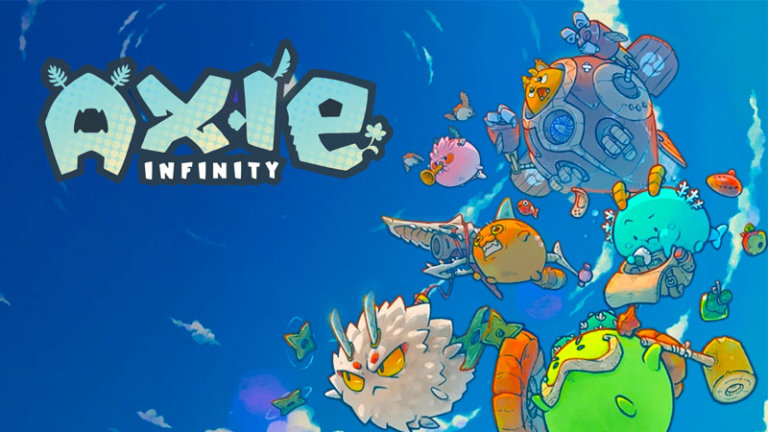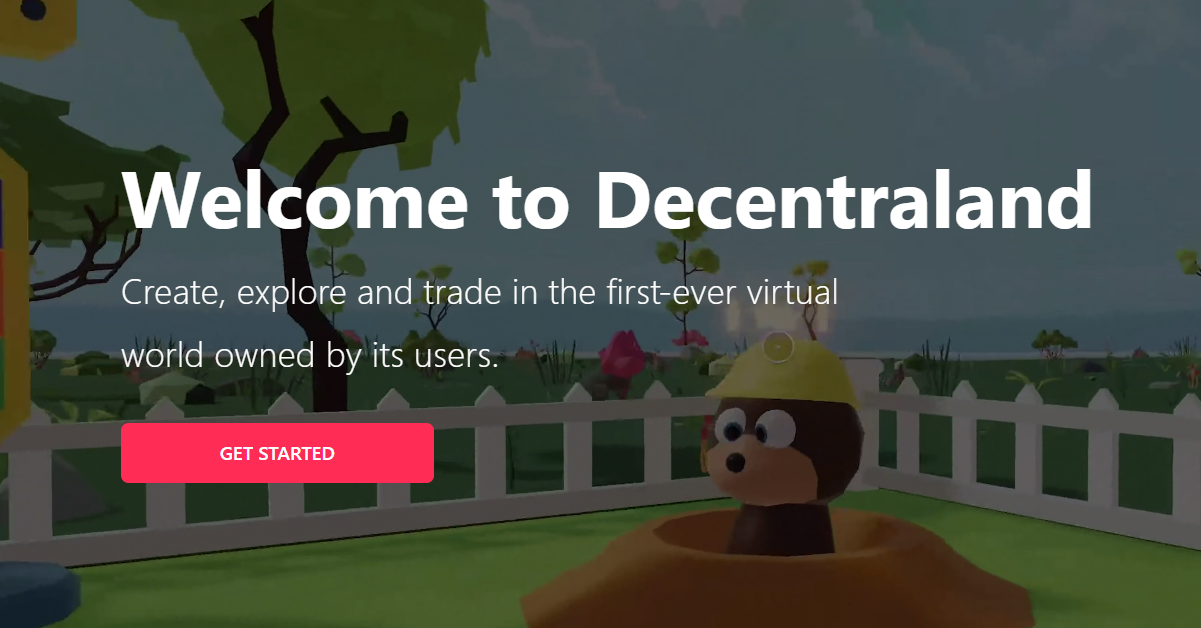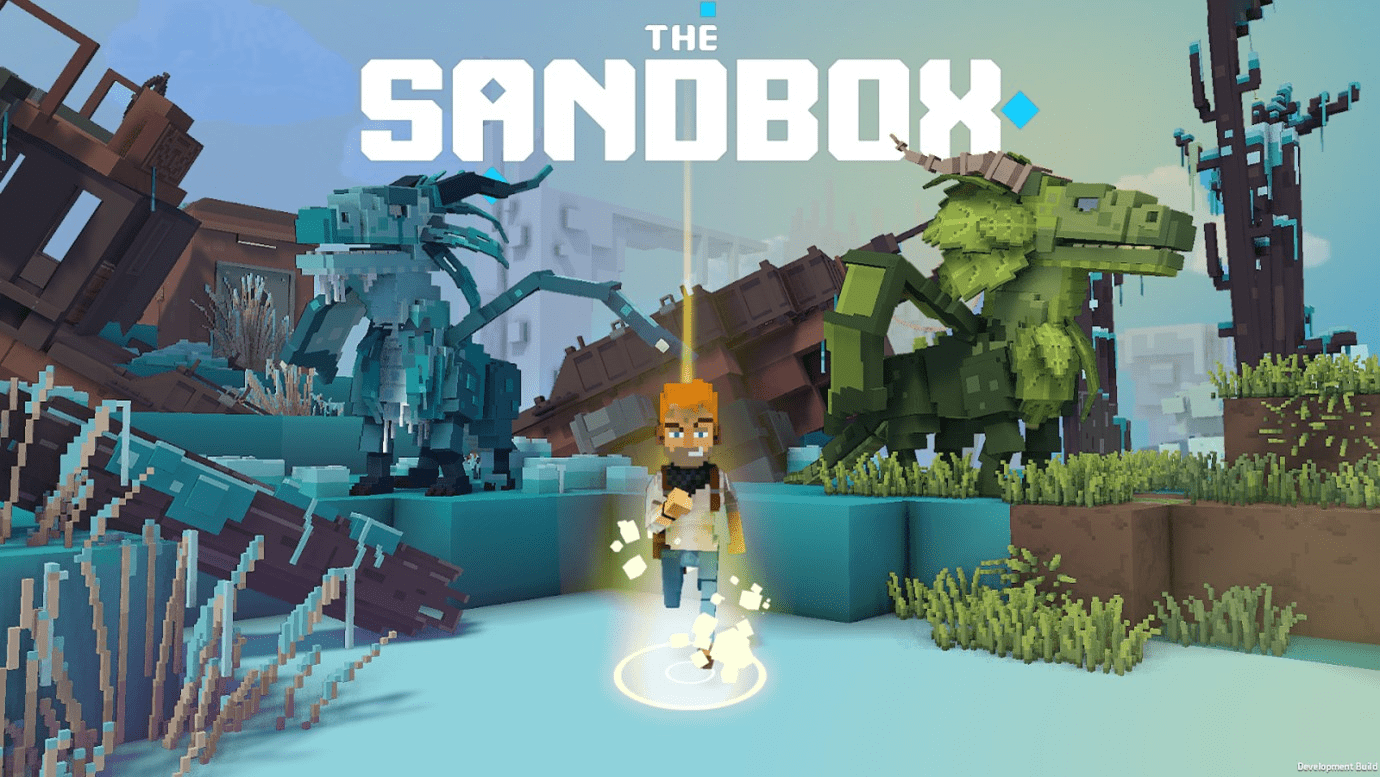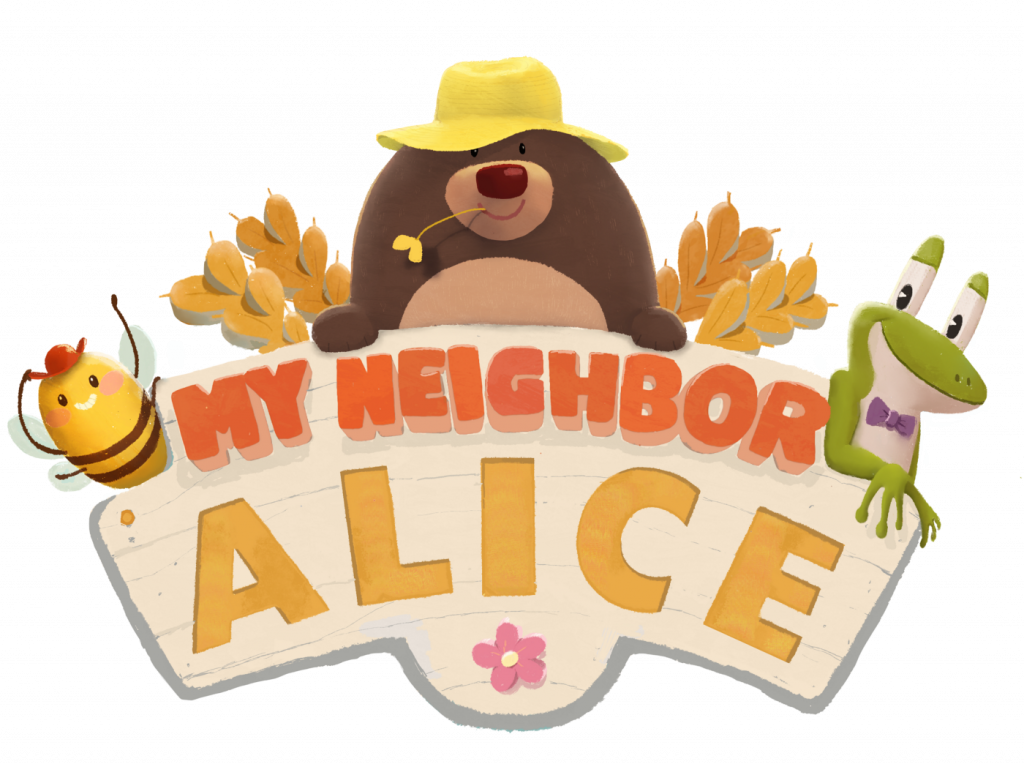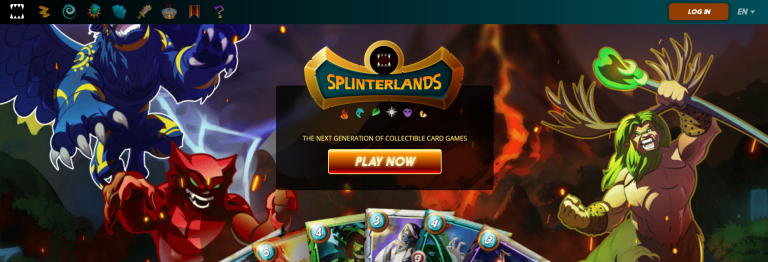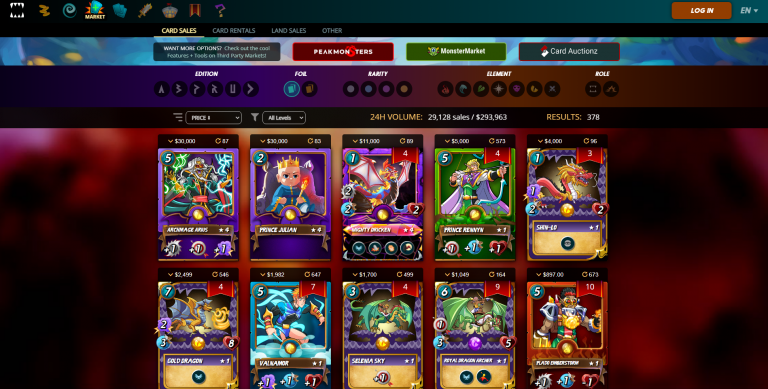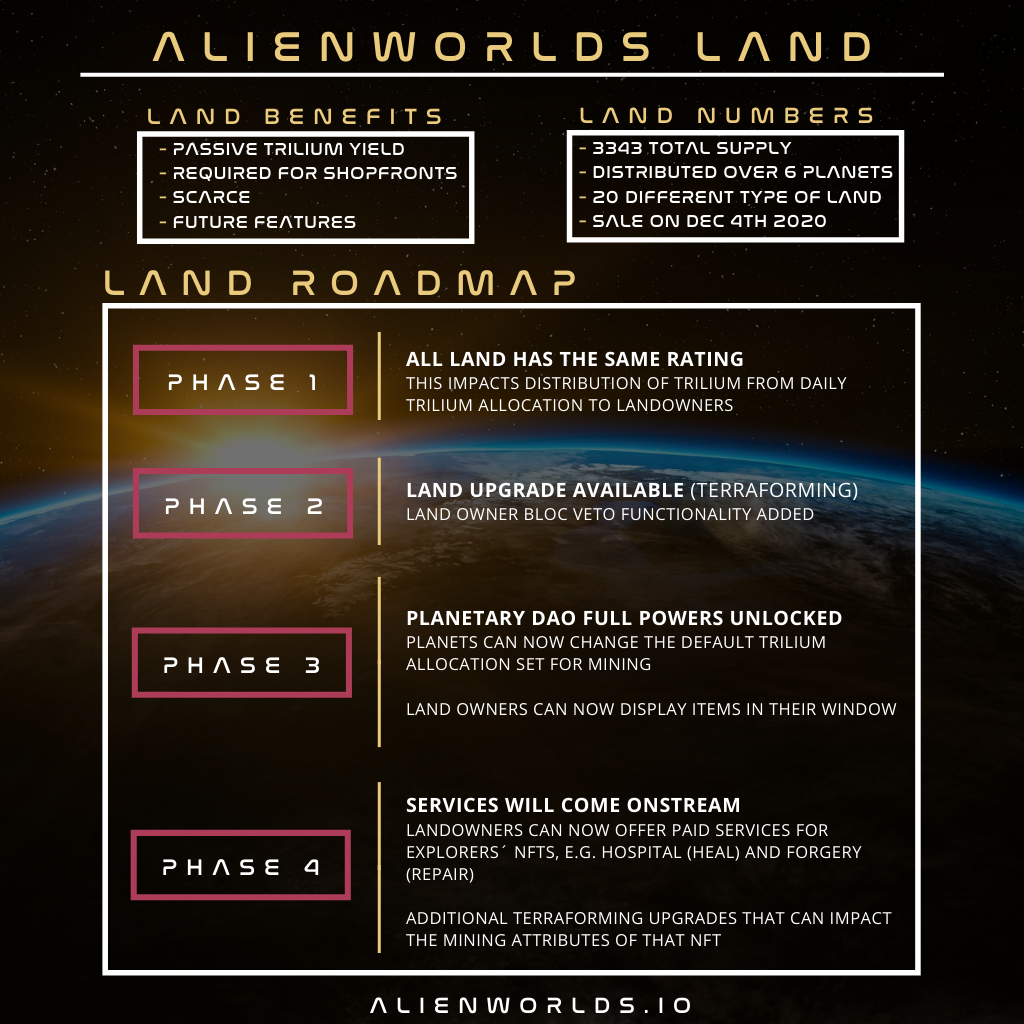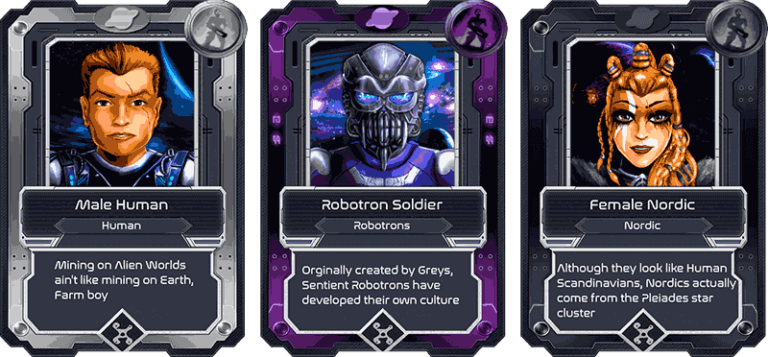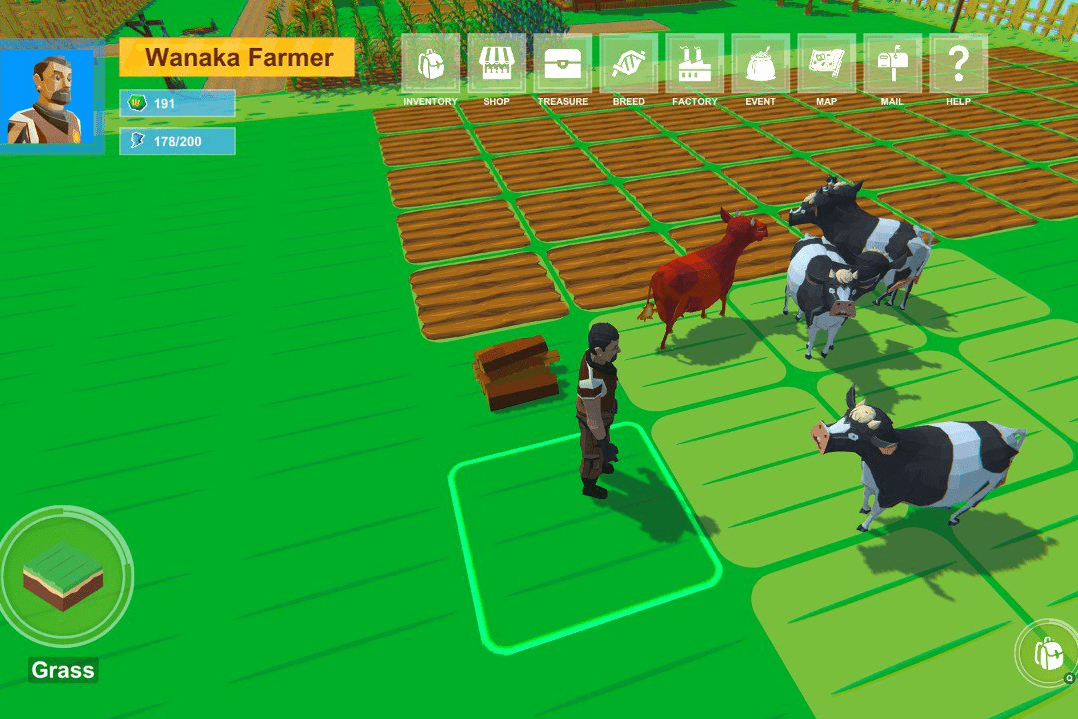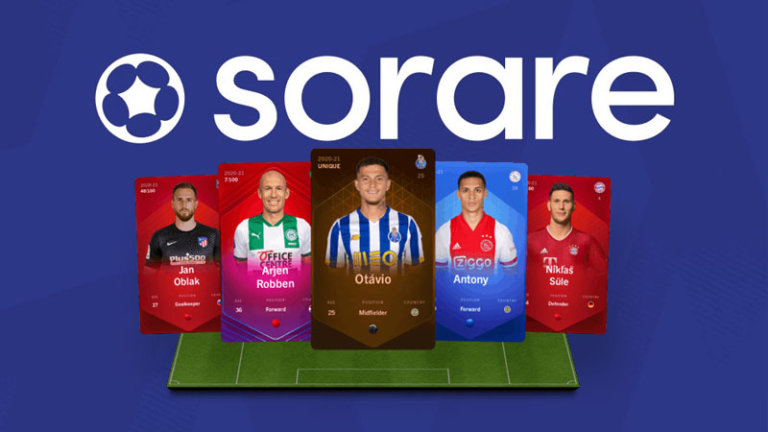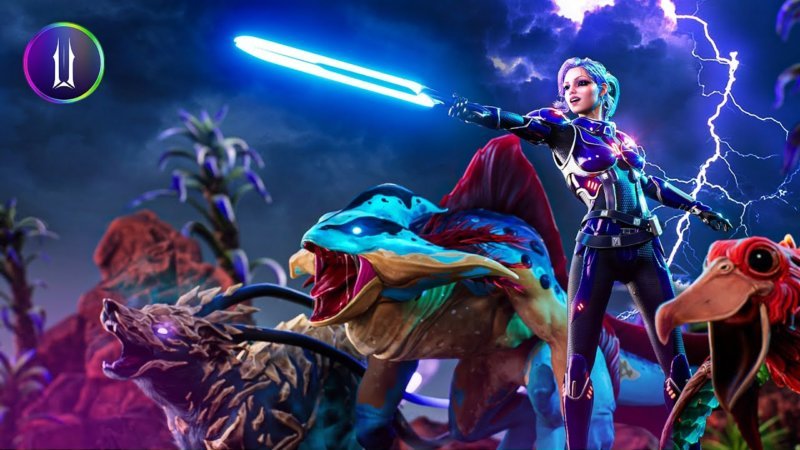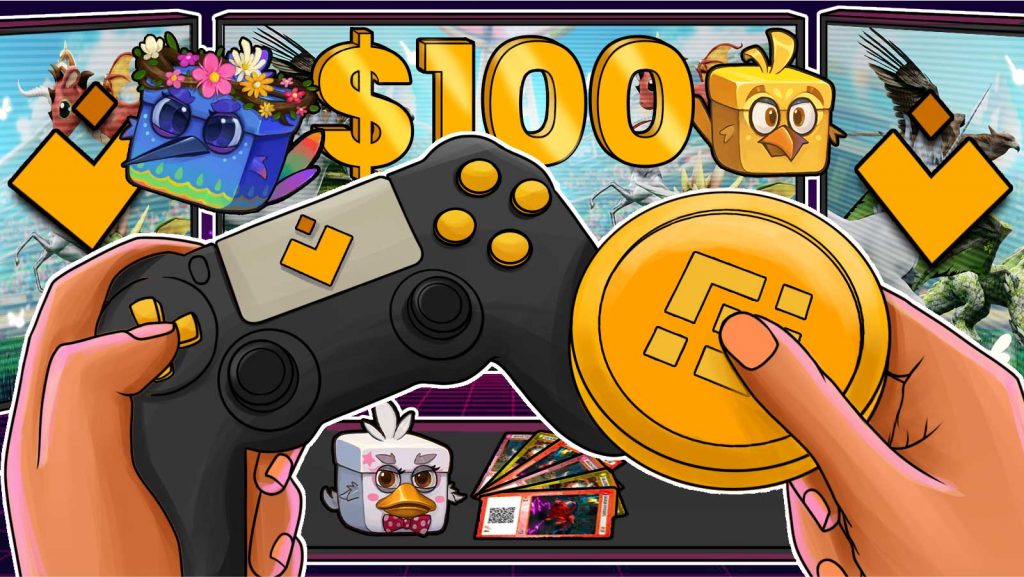Ever since their launch, NFTs have revolutionized every industry they have touched. Of particular note is the gaming space, offering players the many benefits associated with crypto gamification and financial rewards.
Among these benefits, the most significant is the Play to Earn gaming model that has been growing in popularity for quite some time.
Play to Earn games offer a one-of-a-kind tokenomic system that turns your gaming time into cash. This enables players to grab impressive financial incentives along with exciting gameplay.
So what are the best play-to-earn games where you can earn and enjoy at the same time? Read on as we guide you through the best P2E crypto games.
What are the Top NFT Games in 2024?
Though P2E games are relatively new to the digital gaming sphere, the success and popularity of NFT trading have accelerated their adoption manifold.
NFT games are offering a win-win scenario both for gaming developers in the form of larger, more enthusiastic communities and P2E gamers by presenting new earning opportunities.
Here are some of the best NFT games of 2024 that you could jump into right now.
Silks
Why play this NFT game?
- A cutting-edge platform bringing real-world horse racing to NFT world
- Players earn rewards when their digital horse’s real-world counterpart wins races or breeds offspring
- Players can own, trade and interact with variety of in-game NFTs including horses, avatars, land and stables within its metaverse
Silks is our suggestion for the best play to earn NFT game in 2022. Silks is a cutting-edge blockchain-based gaming platform that aims to bring the thoroughbred horse racing industry into the metaverse.
Players can purchase digital Silks Avatars and Silks Horses, both of which are structured as NFTs, within Silks’ virtual environment. However, Silks differentiates itself from similar projects through its innovative derivative gaming structure which directly links each of its Silks Horses to a real-world thoroughbred racehorse.
By employing massive datasets that are confirmed via a Proof-of-Stake (PoS) consensus algorithm, Silks Horses are able to track the bloodlines, development progress, and racing productivity of their real-world counterparts. This enables Silks players to earn incentives when their Silks Horse’s physical counterpart wins a race in the real world.
Silks’ native transactional token $STT is used to deliver these rewards to players, according to its detailed whitepaper. The amount of $STT gained will be determined by an algorithm that considers the real-world prize pool as well as whether a Silks Horse is staked or syndicated within Silks‘ ecosystem.
Another appealing feature of Silks’ P2E gaming economy is the ability to earn rewards through real-world breeding. If a Silks player owns a Silks Horse that is linked to a successful real-world racehorse, when it retires it may produce registered progeny as a broodmare or stallion.
Owners of Silks Horses attached to broodmares or stallions will be compensated in $STT when their foals are purchased in the secondary market by other Silks players due to the high value of successful horses’ offspring.
Finally, because all the key elements in Silks’ virtual world are constructed as NFTs (e.g., horses, avatars, land, and stables), this secondary market can automatically become fully self-sustaining.
Users of Silks can buy these NFTs with $STT to improve their in-game activities. We would rate Silks as one of the most intriguing NFT gaming initiatives this year due to its vivid combination of engaging Play to Earn gaming with distinct ties to real-world data and events.
Tamadoge
Why play this NFT game?
- A combination of memecoin status and utility
- High potential token and ecosystem
- Innovative approach for a varied playing experience
Tamadoge had already made headlines when it raised upwards of a whopping $16 million dollars during its presale a couple of months ago. However, it is evident that the interest back then was not due to it being in the initial stage or hype. There has been massive interest and engagement when it comes to Tamadoge even today.
As a new entrant to the popular Doge ecosystem, Tamadoge was soon to gain popularity when its presale started back in July this year. It has an innovative ecosystem that featured Tamadoge NFTs. These NFTs were adorable dogs which could be fed, nurtured and even used to battle against friends or random players after a point. The developers had announced several of their future plans from the very start like a potential Move-to-earn game etc.
The game is also completely integrated with its very own metaverse, which the community calls Tamaverse. Since its launch, the TAMA token has seen a decent share of volatility, thanks to the current market conditions. Despite this, there has been a surge in demand for the token and the project as a whole.
If the team really does manage to pull off every plan they announced within their ambitious roadmap, then there is no doubt that the TAMA token will spike in price considerably in the next couple of months. Either way, for investors looking to park their funds within the NFT domain, Tamadoge can be a very easy choice to make.
Axie Infinity
Why play this NFT game?
- High-value potential
- Aesthetic visuals and immersive user experience
- Free to play option
The NFT game Axie Infinity is intended to be a fun, accessible, and instructive way to learn about blockchain technology’s capabilities.
It is currently a key name in the blockchain gaming industry across several developing countries in the world. The battle game allows users to combat their ‘Axies’ in real-time.
Axie Infinity takes inspiration from the Pokemon video game franchise and adds a blockchain twist to make the final product even more fascinating.
Players breed and collect NFT-based digital pets called Axies in this Ethereum-based game with the primary goal of combating other players Each Axie has its own unique genetic signature. Health, Morale, Skill, and Speed are the four different stats that each Axie has.
Each of them is important in Axie’s fighting dynamics because it determines how much damage it can take, who attacks first, and how much damage it can send out, among other things.
The faults and strengths of Axies are handed down to their respective descendants. Axies can be found in one of six regular classes (Aquatic, Beast, Bird, Bug, Plant, or Reptile) or one of three secret classes (Dawn, Dusk, or Mech).
Different classes have advantages and disadvantages that make them more or less successful versus other classes. Aquatics, for example, are effective against Beast, Bug, and Mech Axies, but not against Reptile, Plant, or Dusk Axies. They also have an impact on Axie’s stats.
These digital creatures, as expected, can be traded on Ethereum NFT marketplaces, with prices varying depending on their rarity and distinctive characteristics.
To begin playing the game, you must first acquire three Axies. Smooth Love Potion (SLP), the platform’s native ERC-20 utility currency, is awarded for each player-versus-player (PVP) combat mission and adventure mode you complete.
Axis Infinity Shard (AXS), which serves as the platform’s governance token, is another ERC20 token native to Axie Infinity. It will also serve as the foundation for the game’s staking service, which was launched in 2021.
On P2P markets, a variety of in-game resources are tokenized and tradeable. These contain land parcels that users can personalize with a variety of goods.
The Axie Infinity world of Lunacia has a total of 90,601 plots of land, which are divided into seven categories (Savannah, Forest, Arctic, Mystic, Genesis, Lunas Landing, and Map). Axie Infinity is also working on a Lunacia SDK, which will allow players and developers to create new game experiences using Axie Infinity visual assets.
Your capital is at risk.
Decentraland
Why play this NFT game?
- A big name in both the NFT and metaverse worlds
- Players can purchase and develop on virtual plots of land for real estate assets
- Players can also earn various types of NFTs and personalize their entire experience on the platform
Decentraland can be said to offer the best of both worlds, considering it is both an NFT and metaverse revolutionary. Players must first create a customized avatar on the game platform to begin exploring all that it has to offer.
This avatar then becomes the medium of navigating through Decentraland’s virtual world and communicating with other users. One of the most interesting aspects of this NFT game is that players can purchase virtual plots of land and develop real estate.
The real estate is actually represented in the form of NFT tokens within the game and can even be sold in the open marketplace as a trading vehicle.
Apart from land and real estate holdings, Decentraland also allows players to earn various types of NFTs and personalize their entire experience on the platform.
Every NFT traded within Decentraland’s “decentralized” ecosystem is paid for with MANA. This is the native token of the platform. Players can easily purchase MANA tokens from eToro within minutes using their debit/credit card or crypto wallet.
Your capital is at risk.
The Sandbox
Why play this NFT game?
- Players can build, play and trade games and assets within the platform
- Brilliantly designed voxel-based visuals
- Expansive metaverse platform
The Sandbox is no less than a play-to-earn gaming revolution where players may own, build, and monetize virtual goods and gaming experiences.
Artists, investors, gamers, and game designers will all find the game suited to their tastes because it is developed with a comprehensive economy in mind.
The game started out as a standard cross-platform game builder, not a blockchain game. It was nothing more than a 2D pixel-art world maker for mobile phones, which was released in 2012. The new blockchain edition of the Sandbox is a voxel-style virtual land and game-experience creation tool.
This move to the blockchain was intended to address a number of significant concerns with traditional gaming, including actual ownership of in-game assets and a free open market economy for creators and players free from meddling by centralized institutions.
The Marketplace, the VoxEdit, and the Game Maker are the three key pillars that help the Sandbox manage this economy.
The Marketplace is based on the Ethereum blockchain and allows ASSET producers and owners to freely trade their assets. The $SAND is the most often traded currency on the market.
You must be connected to the Ethereum mainnet and have made an account on the sandbox website to access and utilize this marketplace. You can purchase and sell NFTs on the platform for $SAND once you’ve met these requirements, as long as you have a small amount of $ETH in your wallet for gas.
The Sandbox team created VoxEdit, a voxel editing software that is an essential aspect of the Sandbox ecosystem. It facilitates the creation of ASSETS for The Sandbox metaverse by artists.
In simple terms, a voxel is a 3D pixel that serves as the foundation for all ASSETS on The Sandbox. Modeling, Animation, and NFT Conversion are the three main features of VoxEdit.
The Sandbox Ecosystem’s third and final pillar is the Game Maker. Gaming designers and players build and evaluate a variety of game experiences based on the Artists’ ASSETs.
Users can place and use their ASSETS within a piece of LAND (an ERC-721 token) that they own in The Sandbox using The Game Maker. To launch a game you’ve produced right now, you’ll need to either own a piece of LAND in The Sandbox or partner with someone who does.
The Sandbox Creator Fund was established in 2018 with a $2 million fund pool. It focuses on honing its users’ Voxel Art skills in order to create high-quality ASSETs for the game.
The program, which is limited to the first 1000 participants, will assist artists in developing and publishing ASSETs on the Sandbox Marketplace, as well as financially compensating them for their work based on its complexity and quality.
LAND in The Sandbox is an ERC-721 NFT token that gives its holders ownership of a 9696-meter virtual land piece in The Sandbox metaverse. LAND owners can employ ASSETs to create unique experiences for users to visit and enjoy.
There are a total of 166,464 LAND parcels in The Sandbox, with no more being created. As a result, LAND is a very rare NFT in The Sandbox.
$SAND is an ERC-20 token that acts as the principal money of The Sandbox metaverse. $SAND is a utility token that may be used by all players in the Sandbox economy for a variety of reasons, including staking, governance, and transacting on the Sandbox platform.
Thanks to such brilliant features, active partnerships, and regular updates and events, the Sandbox appears to be one the most powerful metaverse projects today.
Your capital is at risk.
My Neighbour Alice
Why play this NFT game?
- Free to play game with in-game purchase options provided
- Wide variety of in-game features designed to upgrade the overall gaming experience
- Offers a reputation system that rewards players as good landowners with increasing benefits
My Neighbor Alice (MNA), created by veteran gaming firm Antler Interactive, is a multiplayer builder game in which players construct and customize their own virtual territories, communicate with neighbors, participate in exciting daily activities, and earn rewards.
Anyone can become a part of the world by purchasing a virtual island and engaging in activities such as farming, fishing, insect catching, and beekeeping.
Players’ status in the game is upgraded through activities, shared missions, and competitions.
My Neighbor Alice is inspired by games like Animal Crossing, Minecraft, and Stardew Valley, which are all incredibly sociable Farming games (see what I did there).
The game is set in the Lummelunda archipelago, on an island complex where animals and humans coexist. Bjorn the Bear, Bob the Beekeeper, Ivan the Merchant, and Shipwright Jose are among Alice’s friends who live on the archipelago.
This is the first game to develop a public application and plot that will appeal to regular gamers first, before moving on to blockchain aficionados and DeFi pros.
According to the whitepaper, it is not intended to be viewed as a game for blockchain players, but rather as a literal game for a global audience. The NFT game employs ALICE tokens, an in-game currency that is replicated as an ERC20 token.
An ERC20 token is a blockchain-based asset that works similarly to Ether, Bitcoin, and other cryptocurrencies, in that it may store value and be sent or received. In other words, the worth of your item in-game.
My Neighbor Alice is classified as a progression-based farming game, which means that access to specific in-game assets or NFTs is determined by the player’s experience points.
When a player obtains a “rare” in-game asset, he or she has the option of keeping it or selling it for ALICE tokens. For example, a rare scarecrow item is only available to players level 25 and up, and because of its rarity, it can fetch a good price in the market, encouraging players to gain experience points only to get a chance at it.
Token holders might also take part in a decentralized governance process that decides how revenue is spent, games are developed, and the community grows—a process that is entirely interactive between the developer and the community.
The makers of my Neighbor Alice have also created collateral-filled NFTs so that customers can earn monthly income on their NFTs while still having instant liquidity when they decide to sell them.
Splinterlands
Why play this NFT game?
- Complete autonomy to the player over usage of playable cards, as they are stored as on-chain NFTs
- Robust marketplace for renting and selling of cards
- A pool of ‘Starter’ cards is available for players without any cards to ensure anybody can build a competitive deck and play.
Splinterlands is a digital collectible card game inspired by MTG and Hearthstone. Based on the HIVE blockchain, the game requires players to gather cards represented by NFTs that can be used to build battle decks.
Each combat is fought in real-time against an opponent. Every time you enter the arena, you will be challenged to build the best deck to oppose your opponent while also working around the various modifier combinations that make each match unique and difficult.
Players can also purchase, sell, and trade their digital assets in the game’s marketplace or shop. This gives players the flexibility to choose any specific digital asset that they need in the game.
When a player has finished all of the necessary cards to play the game, they can begin playing and earning Dark Energy Crystals (DEC) tokens. The DEC coin, in particular, is the SPS network’s official reward token. The token can also be used to purchase in-game things in the shop and transferred between players.
Different sorts of tokens are available in the Splinterlands network. DEC, Credits, and Splinterlands are the three tokens that are currently circulating on the SPS platform. These tokens serve various roles in the Splinterlands ecology.
In the process of picking and assembling decks, Splinterlands is similar to other popular CCGs. But the fights here are played out automatically depending on the card characteristics.
As you wait for the outcome, the sequence, speed, health, attack kinds, attack power, and special abilities of each card dictate how and when they resolve their actions.
The only thing left to do now is improve your plan and increase your collection in order to advance to higher leagues and compete for bigger prizes. Splinterlands is a well-designed, engaging, and enjoyable card game for players of all skill levels.
You get all the cards you need to play and enjoy the heart of what Splinterlands is about a price as low as USD$10. The game will then take you as far as you are willing to go.
Alien Worlds
Why play this NFT game?
- Free to play game with in-game purchase options provided
- Wide variety of in-game features designed to upgrade the overall gaming experience
- Offers a reputation system that rewards players as good landowners with increasing benefits
Sarojina McKenna and Michael Yeates co-founded Alien Worlds, the fastest-growing blockchain game today. The game is a seven-planet metaverse that runs on the Ethereum, WAX, and Binance Smart Chain blockchains.
The concept of not one, but six competing DAOs is at its foundation. The game uses non-fungible tokens, and residents mine for the game’s cryptocurrency trillium, which is similar to the popular the Axie Infinity game AXS money.
After that, both currencies can be traded for fiat money. The goal is to achieve planetary mastery through staking and gaining access to higher-value features.
Gamers can earn local cash by mining, battling other explorers, taking on quests, or getting rental commission from their land in this free game. NFTs are digital things that can be avatars like the Stealth Mercenary for fighting or mining tools like the Artunian Shovel.
People can earn trillium in Alien Worlds. Players that possess trillium have a strategic advantage in the game. Trillium can also be sold for money. It’s easy to participate. Players simply need a WAX wallet and go to play.alienworlds.io, which is completely free. There are no private or public keys in this system. The players then proceed to the location where they wish to mine.
Although the land has previously been sold to over 3,400 users, it is still possible to rent land to mine for trillium. At this point, decisions are taken based on the fact that varied land produces higher returns, NFTs have different strengths, and so on.
People mine trillium on the WAX planets and embark on missions on the BinanceChain planets – the multiple blockchains have different gaming systems, and more will be introduced over time. Players may see which portions of the metaverse are attracting the most attention by looking at the smart contracts and data.
People can and have offered gaming contracts, hosting their own small competitions.
Wanaka Farm
Why play this NFT game?
- Built-in marketplace for exchanging in-game NFT assets in the form of farm tools and crops
- Players can lease the land of other players to expand their farms
- Two in-game currencies, one of which has limited supply
Grab your hoe and seed back and head over to your expanding farm. Wanaka Farm is an NFT game in which you can live your upcountry life in virtual lands, harvesting crops and raising pets. All in-game crops and tools are NFT assets that can be exchanged in a built-in marketplace, thanks to Binance Smart Chain (BSC).
Players can Play-to-Earn in this game by raising animals and growing crops to produce high-quality agricultural products for sale. Alternatively, you can participate in a wide range of entertaining activities that guarantee absolutely wonderful benefits. Simultaneously, the game promotes the benefits of ownership by allowing players to lease the land of others in order to expand the farm.
Each virtual land will be divided into four sections and different types of business models. WANA and WAI are in-game currencies on the platform. The major utility token is WANA. The coin can be used to purchase in-game collectibles and to preserve voting rights in the ecosystem’s governance.
WAI, on the other hand, is used to develop land and pay fees for farming activities. WAI also includes an infinite supply, as well as a token-burning system for liquidating the in-game economy.
The Play to Earn game can be played both on its website and through the mobile application. The in-game token is called WANA and is available on eToro.
Sorare
Why play this NFT game?
- Weekly competitions for winning rare cards or ETH
- Well-known names of the football world are legally licensed on the platform, including Real Madrid and Liverpool
- Collected cards can be traded on the robust marketplace in the form of NFT assets
Sorare is an Ethereum based fantasy football trading card game. Players collect or purchase trading cards in order to engage in weekly competitions and win rare cards or Eth.
Sorare has over 200 teams legally licensed on its platform as of end-October 2021, including well-known names like Real Madrid, Liverpool, Paris Saint-Germain, and Bayern Munich, with more being added every week.
There are four types of cards: commons, rares, super-rares, and uniques. The game is free to play, and when users accomplish specific onboarding chores, they are given a deck of random common cards. To advance through the division leagues and win rewards, players will need to at the very least purchase rare cards on the Ether marketplace.
Players construct a five-player team from their deck of cards, choose a captain, and enter their team into weekly events. The number of points awarded to the team will be determined by the players’ performances in real-life football matches. The NFT cards that players have gathered are their property, and they can sell them to other players on NFT marketplaces.
Illuvium
Why play this NFT game?
- Brilliant game visuals and aesthetics
- Interesting theme similar to Pokemon except in a digital environment
- One of the most massive NFT games today by market capitalization
Illuvium is an upcoming open-world role-playing game that is similar to Pokemon in that players travel through a digital environment populated with uncommon and odd monsters (known as Illuvials) that can be captured, trained, and battled.
The goal of the game is to assemble a great Illuvial team that can defeat opponents in battle and win rewards. Because many in-game assets (including LAND and Illuvials) are represented as NFTs that may be bought and sold at will, the game blends both free-to-play and paid aspects.
Unlike most other play2earn games, Illuvium’s creators chose to construct the game on the Ethereum network (despite its current limitations). Immutable X’s layer-2 solution for zero-cost NFT transfers and transactions will be used to keep the platform available.
Illuvium is not only one of the most ambitious play-to-earn games ever made, but it’s also one of the most massive (by market capitalization). After Axie Infinity, The Sandbox, and My Neighbor Alice, the game has a market cap of more than $500 million, making it the fourth-largest P2E game.
What are Play to Earn Games and How Do They Work?
Play to Earn (P2E) games have lately become the talk of the town. NFTs have opened up a significant opportunity for the gaming space as now the players can take up more critical roles in the crypto gaming economy. More and more gamers today are adopting blockchain technology to blend together unique gameplay, immersive experiences, and plentiful rewards for entire communities.
In this article, we will be talking about the top NFT games of 2022 that are not just fun and unique, but also replete with plenty of earning opportunities for players. You can conveniently trade your in-game possessions and characters with fellow players.
Each of these games is an example of the new era of gaming that cryptocurrency and NFTs have ushered in.
These games stand out because they blend traditional gaming concepts with novel game mechanics to give players more influence over in-game assets including skins, characters, weapons, virtual territories, and more. P2E games are released on different blockchains and anchored with digital asset-powered economies. NFTs are commonly used for these digital assets since they are distinctive and tamper-proof.
The implementation of NFT token standards also allows developers to make sure that these in-game objects rare and distinctive. As a result, some blockchain gaming assets are seen as more valuable than others.
P2E gaming also allows players to claim ownership of game assets using a few basic tactics. They can create or breed new characters, buy digital products on native or third-party marketplaces, as well as earn and unlock additional items.
They also enjoy exclusive ownership rights to all such game assets regardless of how they access them. Therefore, players can distribute or sell them and pocket all the money made from such deals. This is why it is called the “play-to-earn” gaming concept and has become so popular lately.
How is Play to Earn NFT Gaming Different from Traditional Gaming?
Traditionally, gaming formats have always been centered on free-to-play, play-to-win, and pay-to-play models, with no real-economic return on purchased things and paid improvements in the game. P2E gaming is different.
Developers today monetize games in the most disruptive manner possible after incorporating blockchain technologies, giving gamers the option to earn money rewards for their gaming abilities and time invested. NFT games combine blockchain technology with traditional gaming features like point scoring, competitiveness, and rules of play.
The gaming methodology is actually quite simple to understand. All the game world’s assets are programmed as NFTs, which hold specified values among players and collectors and may be bought, sold, and traded.
Games can thus be monetized by developers both by NFT trading and through in-game rewards or cryptocurrencies. Users can engage with their peers, participate in activities, and earn rewards for their accomplishments.
The majority of in-game assets and awards will be NFTS, with varying degrees of rarity. Investing in NFT characters brings certain economic returns for players simultaneously.
How to Make Money Playing NFT Games?
The main goal of play-to-earn gaming is to make money through NFT games. Because your NFT object, land, or character is tied to a cryptocurrency, it has real-world worth.
Consider them as shares in a game, but ones that you can directly affect due to rarity, such as if you build a character with unique features that only you possess, increasing the value. You can then sell your character for actual money on a blockchain.
The risks are that the value of cryptocurrency tokens and NFTs can go up as well as down, leaving some NFT games vulnerable to inflationary and deflationary forces; a plummeting value might cause participants to abandon a game.
Adding free-to-play modes can attract new players and mitigate the loss of existing ones.
Play to Earn Gaming for Android and iOS
Many free-to-play games have found remarkable success reaching gamers on their mobile devices, with the global smartphone penetration rate predicted to be over 78 percent in 2020.
It should come as no surprise that gaming accounts for 43% of all smartphone usage. GameFi’s play-to-earn game developers are aware of this and have made their games compatible with multiple devices.
Your capital is at risk.
How NFT Gamification is Changing the Gaming Industry
Providing Players with a Definitive Source of Income
Gaming has typically been a win-at-all-costs endeavor, with players purchasing products and upgrades that benefit them but provide no financial benefit.
Instead, the new Play-to-Earn model serves as a source of revenue for participants who are rewarded financially for their participation in a game.
Trading NFTs or earning in-game incentives and cryptocurrencies are the two most common ways to earn in play-to-earn games.
To begin, most gamers purchase an NFT character or another startup team. The NFTs can then be sold to other market participants or used to farm crypto and new NFTs. Both of them contribute to the game’s economy, which is essentially independent of developer intervention.
Development of P2E Guilds
Due to the popularity of decentralized games, Play-to-Earn Guilds have sprung up to assist new players. Guild members can “rent” in-game assets instead of paying the sometimes-high cost of purchasing them, decreasing the entrance barrier to NFT games.
The lender will then be paid a percentage of the player’s revenue until the player receives the necessary equipment to begin gaming.
Play-to-earn guilds are a new phenomenon that relies on the popularity and demand of the NFT gaming arena. For all parties in the relationship, it’s a win-win situation. With more new players, guilds earn more, and new players can start earning for themselves.
Game Assets Interoperability
The element of interoperability is one of the most appealing features of NFT games. Traditional console and PC games each have their own ecosystems that are incompatible.
Players’ materials and characters will always be restricted to that single game, with the developers maintaining complete control.
Interoperability
The ability to use individual game assets in various games if approved – is a feature of blockchain-based games. NFT games can reside on the same or compatible blockchains, with game assets that can be traded on exchanges.
Loot is a fantastic example of an NFT project that anyone can utilize to develop a game with. If your NFT is an ERC-721 or BEP-721 token, it can theoretically be utilized in any game that accepts those types of tokens. Of course, this is contingent on the developers’ cooperation.
NFT Staking
Another popular and intriguing trend is NFT staking. Users can save NFTs or cryptocurrencies in smart contracts in some NFT games, which create incentives. Staking MBOX tokens, for example, rewards users with MOMO NFT Mystery Boxes.
Each one contains a unique NFT with a random rarity that can be sold on the secondary market. Players will, however, need a high initial deposit to gain large staking payouts.
Can NFT Games be Played for Free?
One of the main attractions of blockchain games is the ability to acquire non-fungible tokens (NFTs) and cryptocurrency, which can then be traded on a marketplace.
But in most cases, the users must first invest a particular amount of money before they can begin earning, especially when games have reached a certain degree of popularity. These blockchain games range from trading card games to role-playing games (RPG), but you’ll almost always need to start by purchasing in-game assets.
Fortunately, there are P2E NFT platforms that do not require any initial investment. To put it another way, you don’t buy NFTs to start the game. Consider them free-to-play games with the extra benefit of generating revenue through NFT and blockchain technology.
Conclusion
Traditionally, only e-sport athletes or content providers have been able to make money from playing video games. The typical gamer may now make money by purchasing and selling in-game NFTs or fulfilling tasks in exchange for cryptocurrency rewards thanks to play to earn games like Silks, Axie Infinity and others.
While we only featured ten games, there is a large library of play-to-earn games to be discovered. All indications point to more AAA developers entering the NFT industry in the future. The NFT gaming industry will continue to expand and gain traction.
A growing number of businesses are promoting the concept of a metaverse. The top NFT games are still in their early stages. These serve as a demonstration of how the technology can be implemented.
In many respects, this opens things up. More games are likely to employ the blockchain to underlie their in-game item system. The ability to keep and exchange in-game skins could become a big element of games in the future.
NFT gaming is definitely an area of the industry to keep an eye on in the near future.
Most Searched Crypto Launch - Pepe Unchained
- Layer 2 Meme Coin Ecosystem
- Featured in Cointelegraph
- SolidProof & Coinsult Audited
- Staking Rewards - pepeunchained.com
- $10+ Million Raised at ICO - Ends Soon
